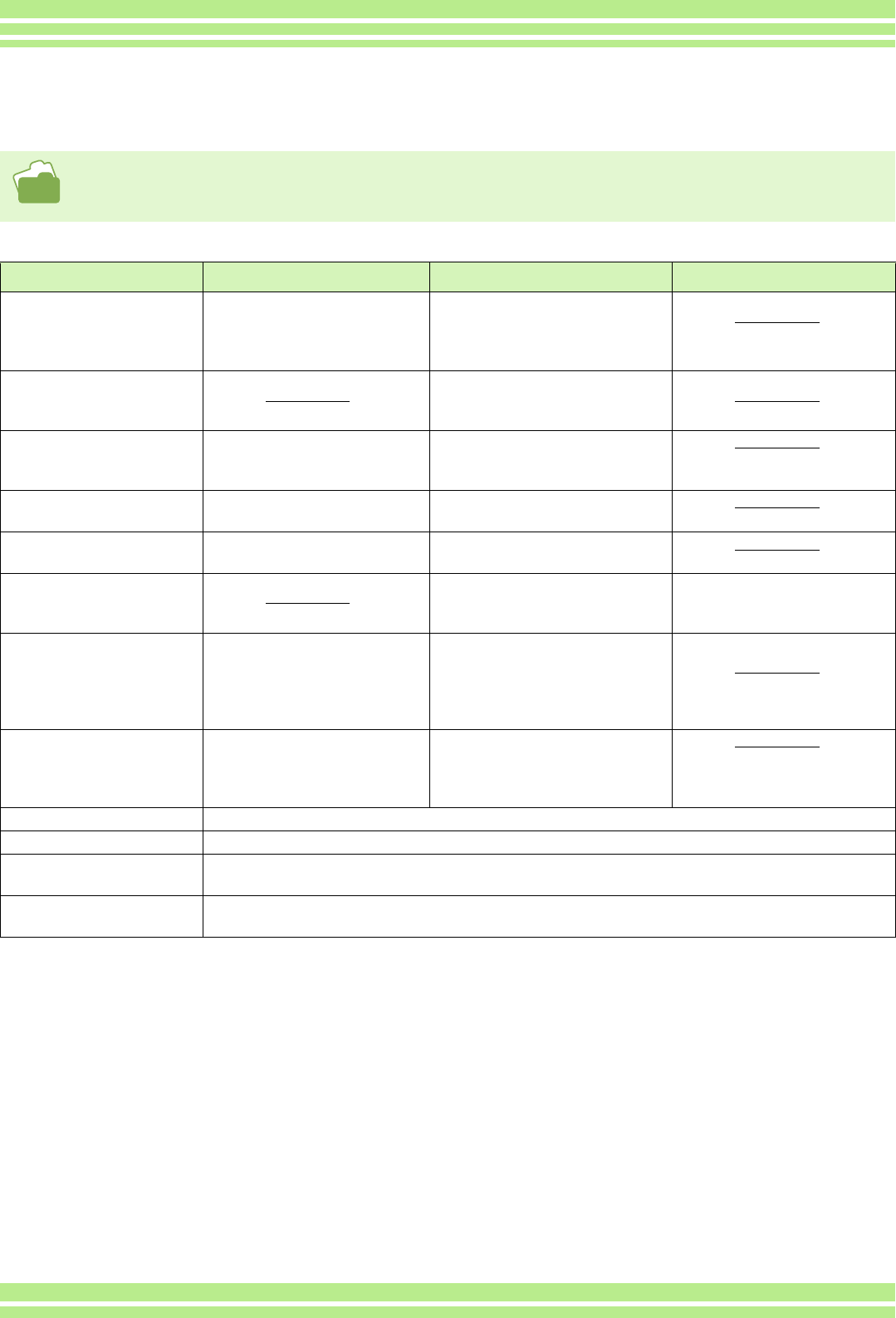
Chapter 1 Section 1 Getting Started
23
Button Functions
The following table summarizes the functions of the camera's buttons.
Button Shooting Mode Playback Mode Menu display
D (Delete)/
T (Self-timer) Button
If you press the button in Shooting
Mode, self-timer mode is activated
and you can take photos using the
self-timer (see P.51).
If you press the button during Playback
Mode, you can delete the still image or
movie that is displayed on the LCD
Monitor (see P.100).
! Button In Voice Playback Mode, press the but-
ton to adjust the sound volume
(G4wide only) (see P.92, P.94).
" (N: Macro) Button You can take close-ups (see P.46). In Voice Playback Mode, press the but-
ton to adjust the sound volume
(G4wide only) (see P.92, P.94).
# (Q: Quick Review) Button The last still image you took is dis-
played (see P.87).
Displays the previous still image or
movie (see P.90).
$ ( F: Flash) Button Switches between Flash/Flash Off
and other Modes (see P.49).
Displays the next still image or movie
(see P.90).
!"#$ Button Displays the still image (or movie) on
the right, left, above or below in
Thumbnail Display mode. (see P.95)
Moves the frame left, right, up and
down (see P.23).
Z (Wide-angle)/
9 (Thumbnail Display) Button
If you press the button in Shooting
Mode, you can shoot with the wide-
angle (see P.44).
If you press the button in Playback
Mode, the LCD Monitor display is split,
allowing you to see sets of still images
at one glance (6 images at once) (see
P.95).
z (Telephoto)/
8 (Enlarged View) Button
If you press the button in Shooting
Mode, you can shoot with the tele-
photo zoom (see P.44).
If you press the button in Playback
Mode, image is displayed on the LCD
Monitor up to 3.4 times larger (see
P.96).
DISP Button Switches the display of symbols on the LCD Monitor (see P.22).
O Button This is used for operating menus on the LCD monitor (see P.30).
M Button This button is used for setting the various shooting methods (see P.24), or downloading still images onto your com-
puter (see P.136).
ADJ. Button This button is used to make settings for exposure control, white balance, and ISO sensitivity, with minimum opera-
tions (see P.54).
• Power Button, see P.14.
• Mode Dial, see P.8.
• Shutter Button, see P.33.


















